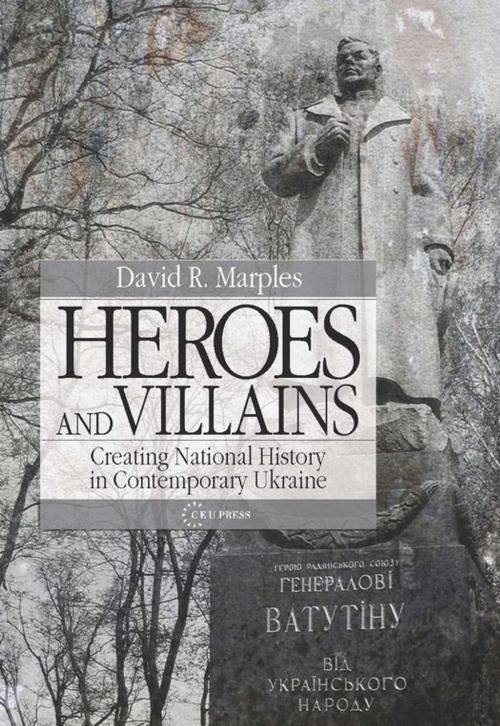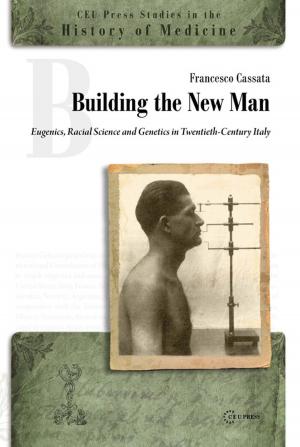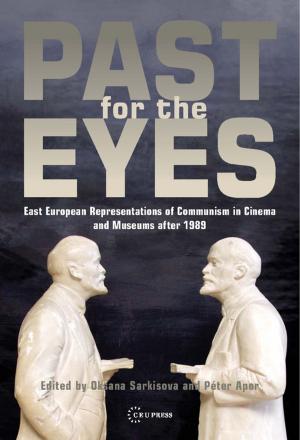Heroes and Villains
Creating National History in Contemporary Ukraine
Nonfiction, Social & Cultural Studies, Political Science| Author: | David R. Marples | ISBN: | 9786155211355 |
| Publisher: | Central European University Press | Publication: | January 23, 2013 |
| Imprint: | Central European University Press | Language: | English |
| Author: | David R. Marples |
| ISBN: | 9786155211355 |
| Publisher: | Central European University Press |
| Publication: | January 23, 2013 |
| Imprint: | Central European University Press |
| Language: | English |
Certain to engender debate in the media, especially in Ukraine itself, as well as the academic community. Using a wide selection of newspapers, journals, monographs, and school textbooks from different regions of the country, the book examines the sensitive issue of the changing perspectives – often shifting 180 degrees – on several events discussed in the new narratives of the Stalin years published in the Ukraine since the late Gorbachev period until 2005. These events were pivotal to Ukrainian history in the 20th century, including the Famine of 1932–33 and Ukrainian insurgency during the war years. This latter period is particularly disputed, and analyzed with regard to the roles of the OUN (Organization of Ukrainian Nationalists) and the UPA (Ukrainian Insurgent Army) during and after the war. Were these organizations "freedom fighters" or "collaborators"? To what extent are they the architects of the modern independent state? "This excellent book fills a longstanding void in literature on the politics of memory in Eastern Europe. Professor Marples has produced an innovative and courageous study of how postcommunist Ukraine is rewriting its Stalinist and wartime past by gradually but inconsistently substituting Soviet models with nationalist interpretations. Grounded in an attentive reading of Ukrainian scholarship and journalism from the last two decades, this book offers a balanced take on such sensitive issues as the Great Famine of 1932-33 and the role of the Ukrainian nationalist insurgents during World War II. Instead of taking sides in the passionate debates on these subjects, Marples analyzes the debates themselves as discursive sites where a new national history is being forged. Clearly written and well argued, this study will make a major impact both within and beyond academia." - Serhy Yekelchyk, University of Victoria
Certain to engender debate in the media, especially in Ukraine itself, as well as the academic community. Using a wide selection of newspapers, journals, monographs, and school textbooks from different regions of the country, the book examines the sensitive issue of the changing perspectives – often shifting 180 degrees – on several events discussed in the new narratives of the Stalin years published in the Ukraine since the late Gorbachev period until 2005. These events were pivotal to Ukrainian history in the 20th century, including the Famine of 1932–33 and Ukrainian insurgency during the war years. This latter period is particularly disputed, and analyzed with regard to the roles of the OUN (Organization of Ukrainian Nationalists) and the UPA (Ukrainian Insurgent Army) during and after the war. Were these organizations "freedom fighters" or "collaborators"? To what extent are they the architects of the modern independent state? "This excellent book fills a longstanding void in literature on the politics of memory in Eastern Europe. Professor Marples has produced an innovative and courageous study of how postcommunist Ukraine is rewriting its Stalinist and wartime past by gradually but inconsistently substituting Soviet models with nationalist interpretations. Grounded in an attentive reading of Ukrainian scholarship and journalism from the last two decades, this book offers a balanced take on such sensitive issues as the Great Famine of 1932-33 and the role of the Ukrainian nationalist insurgents during World War II. Instead of taking sides in the passionate debates on these subjects, Marples analyzes the debates themselves as discursive sites where a new national history is being forged. Clearly written and well argued, this study will make a major impact both within and beyond academia." - Serhy Yekelchyk, University of Victoria















